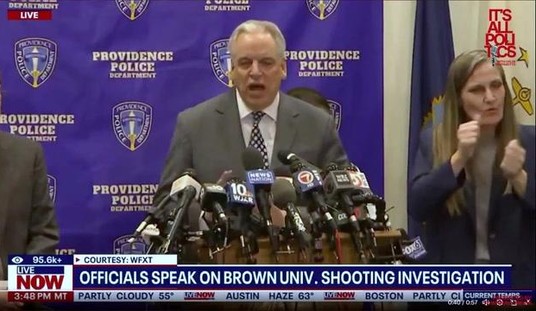The Hawaii official who sent the errant false alarm text alert warning of a ballistic missile attack on January 13 is refusing to cooperate with a Federal Communications Commission probe, according to an FCC official.
“We are quite pleased with the level of cooperation we have received from the leadership of the Hawaii Emergency Management Agency thus far,” Lisa Fowlkes, chief of the FCC’s Public Safety & Homeland Security Bureau, told the Senate Commerce, Science and Transportation Committee on Thursday.
“We are disappointed, however, that one key employee, the person who transmitted the false alert, is refusing to cooperate with our investigation,” she said. “We hope that person will reconsider.”
FCC officials and communication industry leaders were in Washington to testify before the committee about issues related to the nation’s Emergency Alert System (EAS).
Statewide panic ensued in Hawaii after a text alert was sent out warning residents to take shelter to prepare for an attack that was imminent. The alert, which was sent to phones at around 8:00 a.m., sent people scrambling for shelter, unsure how to respond to a possible attack. The alert was also pushed out on TV, interrupting sports programming with the warning: “A missile may impact on land or sea in minutes.”
A follow-up message was sent 38 minutes later, announcing that the first message had been a false alarm. State officials later said an employee pushed the wrong button during a shift change at the Hawaii Emergency Management Agency (HEMA). In the aftermath of the incident, the Federal Communications Commission and the Hawaii House of Representatives announced plans to investigate.
Fowlkes called the false alert “absolutely unacceptable.” She said that HEMA told the FCC that it is “working with its vendor to implement additional safeguards into its alert initiation software and has changed its protocols to require two individuals to sign off on transmissions of tests and live alerts.”
In addition to the false alarm in Hawaii, Thursday’s hearing also focused on problems with the recent tsunami alerts sent out in Alaska following the recent 7.9 magnitude earthquake. That alert was sent to residents far outside the danger zone.
Sen. Brian Schatz (D-Hawaii) said that he is introducing legislation that would put responsibility for the alerts into the hands of the Departments of Defense and Homeland Security.
“The states are the laboratories for democracy,” he said, but “they should not be the laboratories for missile alerts.” He added, “A missile attack is federal. A missile attack is not a local responsibility.”
“Confirmation and notification of a missile attack should reside with the agency that knows first and knows for sure. In other words, the people who know should be the people who tell us,” said Schatz.










Join the conversation as a VIP Member